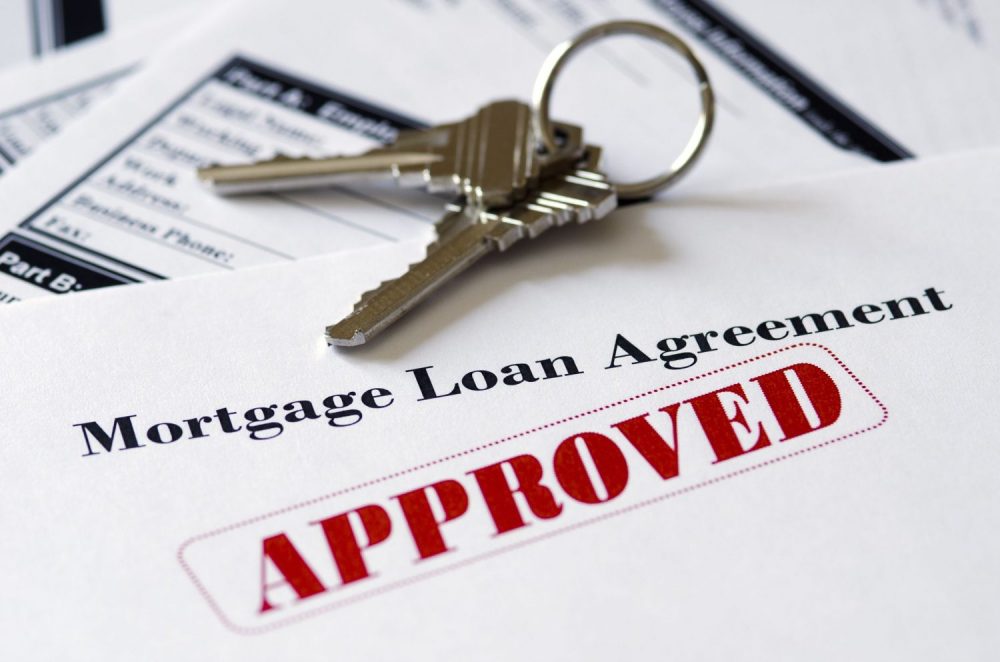
A mortgage is a loan from a bank or other financial institution that helps a lender buy a home. The mortgage is the house itself, which means that the borrower can sell the house and get their money back if they do not pay off the monthly loan and the total loan amount. Specifically, a mortgage is a legal document that allows a lender to purchase a home if the loan is not repaid as agreed. In some states, this document is called a trust deed. When you pay off your mortgage, you will ultimately own the home. or be The creditor’s legal right to claim the home back is no longer valid.
Getting a mortgage to buy a home is one of the critical financial decisions you’ll have to make in your adult life. Although the steps can be confusing, asking the relevant questions is a good start. The good news is that there are resources available to help answer your questions. In addition, many mortgage professionals can give you the information you need so that you can make the best decision for yourself and your family. Here are six relent questions you should ask when getting a mortgage.
1. What Type of Loan is Best For Me?

You need to have good credit when applying for a mortgage, but you will need to look into what kind of loan is best suited for your situation. With today’s stricter lending standards, you need to make sure you get the best loan program available.
This question will help you decide whether you’re speaking to a salesperson or a quality adviser. If you ask, “What options do you have?” your mortgage lender should tell you the pros and cons of each type of loan discussed. Reputable lenders will want to know more about you before helping you choose the best loan options. So, before settling for a specific loan, choose a broker who can collect enough information about you.
Ask your lender to explain the strengths and weaknesses of fixed-rate loans, interest rate loans, and negative amortization loans and how they fit your situation. Fixed-rate bonds do not change interest rates, so you know your monthly payments until the last payment. Regulated interest rates vary from market to market and fluctuate but usually remain the same for the first five years.
In the case of interest-bearing loans, the principal balance takes a certain amount of time. Meanwhile, you only pay interest. This is why it is so important to choose the lender.
2. What is the Down Payment?
The generally accepted answer to this question is 20%, but this is not always necessary. If you qualify, you can pay up to 3% on some types of loans, but there are pros and cons. One disadvantage is that if it is less than 20%, you will have to pay for private mortgage insurance. This can mean higher closing costs and higher monthly payments until you hit the magical 80% LTV. If your home has at least 20%, the lender usually offers the lowest interest rate.
3. What About Registration and Prepayment Fees?

Again, there are considerations for each installment payment option. The best lenders will take the time to discuss all possible options with you. A lender familiar with local, state, and national disbursement assistance programs and has the resources to assist you in the process is invaluable.
Some will charge a hefty registration fee and a prepayment. Therefore, it is essential to compare prices. However, most financial institutions are focused on finding the right home and loan program without taking anything out of your pocket.
4. What Is The Interest and Annual Percentage Rate?
Lenders can move the mortgage interest rate in several ways, most of which involve additional costs. Still, after talking to at least a few lenders, you can get an estimate of the loan interest rate—approximately about 5%. Once you know this, move on to the following fundamental question about annual rates. So, if you are considering an adjustable-rate mortgage instead of a fixed-rate mortgage, ask yourself: how often do interest rates coincide with payments? What is the maximum annual adjustment amount? What is the maximum tariff limit? The Annual Borrowing Rate (APR) is determined by a complex calculation of the interest rate and all other associated borrowing costs, divided by the loan term.
Not all brokers calculate the annual interest rate the same, and there is no reliable way to calculate the annual interest rate for an adjustable mortgage. If interest rates differ, check with your mortgage lender for the best yearly adjustment and frequency of adjustments, interest rate, index, and margin.
5. What Are The Total Costs Involved and Penalty?

Many people have to re-evaluate their lives in the current economy to afford our homes, so if you are thinking about buying a new home, you need to consider the total costs and penalty of getting a mortgage. Third-party fees can pile up, such as appraisal, property verification, property taxes, and other closing costs are payable when the loan is signed.
This commission is specified in the official loan proposal document and the final disclosure after signing. But the sooner you know how much it is, the better you can make your choice. These cost estimates must be accurately recorded in a document required by federal brokers. When completing the application, the lender must provide a loan proposal that lists the borrower’s name, social security number, property address, declared property value, loan amount, and borrower’s income.
6. What are the Penalties?
Some states no longer allow prepayment fines, but it is always essential to inquire about this. This penalty will enable lenders to charge an additional six months of interest if you pay off your loan early. Some penalties apply only for the first two to five years of the loan. Ask about prepayment terms and whether a prepayment penalty will apply if you later refinance through the same lender.
Conclusion
If you wonder how long it would take to get a mortgage, try consulting a professional mortgage broker. Be mindful that financial laws might differ slightly in different states and countries, so make state-specific inquiries. For example, if you plan on buying a home in Toronto, it’s a no-brainer that you should get help from that specific area because they know the real estate market. So if you’re planning to buy a property there, here’s a good website you can visit for information – https://spearmortgage.ca/.








